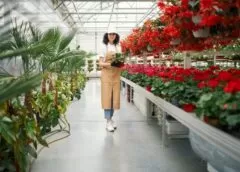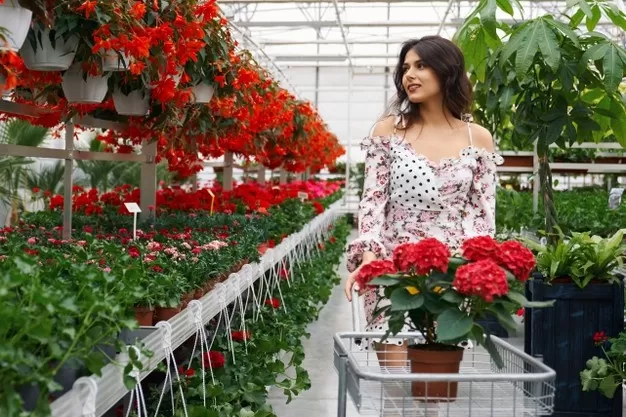Well, you’ve decided to enter into gardening. Pretty exciting, huh? Except that there is so much information that you have no clue where to even begin! Don’t be afraid. Gardening tips are here! Below are some tips that will help you get started and organized to become a successful gardener.
To make your garden more productive, allocate space based on what grows best in your area instead of choosing your favorite crops. Although you may love beets, if tomatoes grow better in your climate, give them more room in your garden and make your beet plantings smaller. Ask your neighbors or look around your area to see what grows best in your region.
Use groundcover perennials in sunny areas. Groundcover perennials can be used as an alternative to grass with minimal foot traffic or in areas where the grass is difficult to maintain, such as on a slope. They are also handy between larger perennials, as they help suppress weeds and keep the soil moist and cool. Good choices for groundcover perennials are creeping thyme, ajuga, various sedums, alyssum, and Armeria.
When gardening, make sure that you have a good gardening glove. Gardening is rough on your hands. Thorns and sharp branches can hurt your hands if gloves do not protect them. Sometimes you cannot see what is in a bush when you stick your hand in there to prune. Wearing a pair of gardening gloves will ensure that your hands will not be injured.
You can test the viability of your seeds by soaking them overnight. Drop them into a water container and keep them in the dark for a day. Check the location of the seeds. If they sink to the bottom, they are usable. If they float the top, they may be dead.
If you have a pond in your garden, make sure you maintain it throughout the year. To keep a pond healthy, you need to ensure that the water is clear and plants do not take over. Remember, aquatic plants and wildlife will thrive with the right balance of light, oxygen, and air.
A great way to keep insects and pests at bay in your garden is to spray your plants with a dish soap and water mixture. A mixture of one-quart water and one-half teaspoon of dish detergent will kill those pesky parasites. Be sure to respray every fourteen days.
If you grow roses or rosebushes, spray them with a solution of 1/3 cup powdered milk in about a quart of water once a week or so. The powered milk solution will be sticky on your roses’ leaves and stems, trap aphids and protect your roses.
To give your plants all the iron they need, bury old, rusty pieces of steel in your garden. Damaged steel should break down quickly, allowing the soil to absorb iron and feed it to your plants. This is also a valuable way to get rid of the junk clogging up your garage.
When gardening, you must protect your ears. If you can not hear someone around you while working with machinery, the sound can damage your ears. An easy way to help alleviate this problem is to wear earplugs when using loud machinery.
To bring birds to your garden, add plants that will naturally attract them. One of the best plants for attracting birds is sunflowers. Birds are naturally drawn to their height and scent. Birds also love small trees like Japanese maples and dogwood trees and most kinds of shrubs or vines.
Deadhead annual flowers constantly. This will encourage new growth and promote flowering all season. With perennials, cut the entire plant down by a third after flowering. It will bush out and provide you with a new flush of flowers later in the season. Leave the spent flowers on plants until they dry up and collect the seeds at the end of the season.
You need to make sure to wear sunscreen when you are gardening. It is essential to regularly apply a generous amount of sunscreen when gardening to protect yourself from the sun’s rays. Sunscreen should be applied more than just one time throughout the day.
Wearing gloves to protect your hands is very important. You can get cut on something lodged in the ground if you do not wear gardening gloves. The best time to buy gardening gloves is when all gardening supplies have been cleared at the end of summer.
Use compost to feed your crops. In organic gardening, compost is necessary for the survival of your plants. A home compost pile is a great, inexpensive source of compost. Many food scraps, grass, and dry leaves can be used in your compost. However, avoid cooked foods, ash, and animal waste in an organic compost pile.
Research plants before bringing them home. When you are trying to get the best plants for your organic landscape, you should take the time to get educated. Choose plants suited to growing conditions you already have, rather than trying to build an environment for a plant you didn’t properly plan for.
When starting an organic garden, test the pH level of your soil. You need to know the pH level of your soil to choose the appropriate plants that will grow in it. For example, plants that favor an alkaline soil will not do well in acidic soil. Test kits can be purchased to test the pH level of your soil.
Now, don’t you feel better after reading all those tips? That was much information to think about and read through, but now you know what to do and where to begin with your gardening. Plus, you can always refer to the above list of tips if you forget. Pretty convenient, huh?


